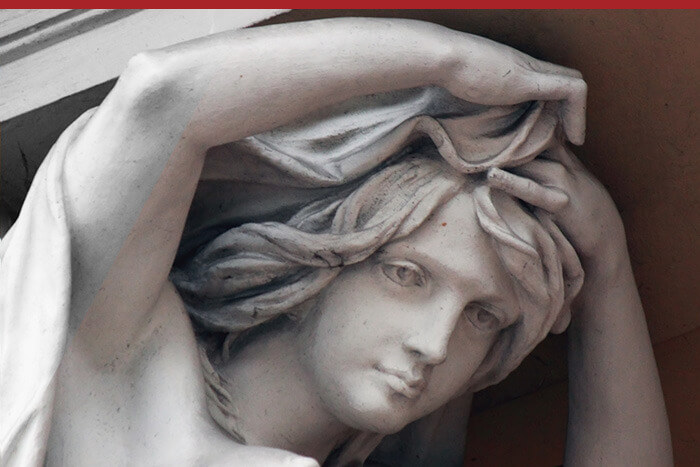In our June Newsletter I introduced the work that Bernie Neville and I did on the Greek gods as archetypes for understanding the unconscious patterns of behavior that occur in organizations. the gods and goddess provide a window on different organizations you might know, work in, or recognize.
The archetype goddess we examine this month in more detail, is Hera. ‘Lady’ is a fitting title for Hera. On the one hand it denotes her dignity and the honor due to her as queen of the gods. On the other, it has an old-fashioned feel to it, with connotations of old-fashioned values, ‘proper’ behavior and keeping up appearances. She is a great and glorious goddess who at the same time is capable of extraordinary pettiness and spite. She sometimes appears as an old woman, for she represents the wisdom of the old ways. She stands for tradition and conservative values. She is more often represented as a mature and fulfilled woman, who can occasionally bend even Zeus to her will. She is also a girl, for she bathes every year in a spring to renew her virginity, a symbol of the independence of the woman who is not possessed by or beholden to any man.
Greek myths often carry a moral message. Hera offers a very different morality from Zeus. Zeus commands us to ‘Do it because I say so!’ Hera reminds us of social obligations.
The typical Hera organization is the family company, where the image of the family shapes the way the organization thinks and talks about itself. New members of the organization, if they are not already members of the family, are adopted into it, and if they ‘fit in’ are likely to stay with the organization for many years. There is an expectation that members socialise with each other. The company organizes family picnics and other outings. What make the company special is the bonds between people. Loyalty to the organization is highly valued. Disloyalty to the organization is the worst of crimes. The company reciprocates the loyalty of its employees. Loyalty to employees may actually be more important than profit, and inefficient and unproductive (but loyal) employees may be retained by the company because to sack them would be immoral.
The British royal family is an organization that upholds Hera values. Family comes first. Members have status and identity only as members of the family, and if they betray the family’s values they will be expelled from it. Honour is all-important. Appearance must be kept up at all costs, and part of the appearance is conservative moral values.
There are great satisfactions in being part of a Hera organization. You know where you fit in, because ‘fitting in’ is an essential aspect of the Hera culture. You can count on people to act in the best interests of the organization rather than out of personal ambition. You can serve something bigger than your personal whims, and share this service with others. You will happily work long hours for little or no remuneration rather than let the organization down. The sense of relationship may be horizontal, between family members with different roles and responsibilities, rather than vertical, between you and the boss or bosses. (Of course, senior members of the family will be treated with great respect.) You and your colleagues do not criticise the organization to outsiders. Rather, you are zealous in showing its positive side. These satisfactions may be balanced by some frustration at the excessive stability of the organization. There is likely to be a strong sense of the established and ‘proper’ way of doing things. You may be made to feel that you are disloyal if you insist on your right to leave work at the official closing time or take your full entitlement of annual leave. Even if your work in the organization is voluntary, a lack of commitment will be considered shameful. Leaving the organization to work for another (especially if money is involved) may be looked on as outright betrayal.
We often find Hera as a dominant archetype in trade union settings. In work with union members and officials it is common to hear them speak of their shared experience in terms of family. Indeed it is a very strong motif throughout all their dealings, particularly in times of external threat. Equally, you often find Hera as a dominant archetype in police forces and correctional service workforces and the mafia.
Archetypal psychology suggests that a polytheistic organization is a healthy organization. One that becomes consumed by the strong presence of a dominant archetype will inevitably become unbalanced and ineffective. Indeed, the stronger the presence of one archetype the more likely that the shadow or dark side of that particular archetype will also be at play. Too much of a good thing, so to speak, will create dysfunctionality, no matter which archetypal energy is dominant.
The cost of a dominant Hera archetype at work in a system has appeared across western societies in unearthing the institutional collusion in many religious and secular organizations to protect perpetrators of child abuse from the public scrutiny of the law.
Hera obviously has a strong connection with Zeus. Her maintaining the societal status quo is her contribution to maintaining the patriarchal political status quo. The Hera culture seems to be particularly strong in organizations dedicated to maintaining the political and social system. In our experience there is no organizational setting where Hera cannot necessarily appear. In recent consulting work we have found her alive and well, even among the medical staff in the ICU of large public hospital.
The consultant who looks at organizations from a Hera perspective will focus on those aspects of an organization that contribute to its stability: the functional relationships and roles, the loyalty of its members, the shared values. These are seen as strengths to be maintained and enhanced, while heroic individualism will be seen as destructive.







